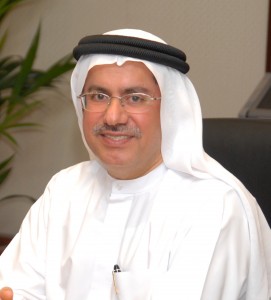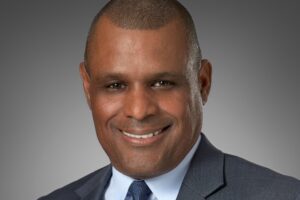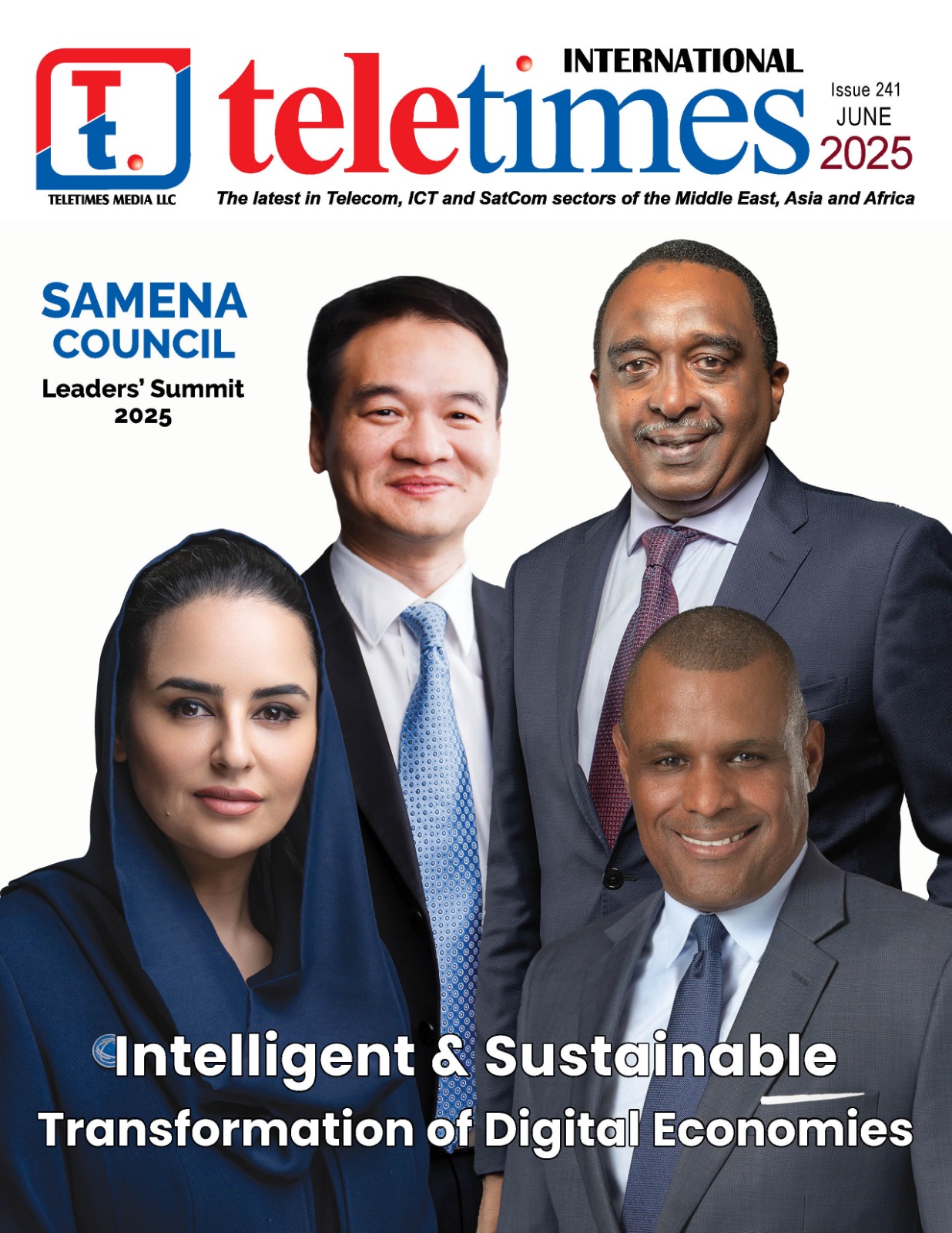Chairman Etisalat, Mohammad Omran
Mr. Omran has worked for Etisalat over three decades and served in many different positions until he became the Chairman of Etisalat in 2005. In 2010, Arabian Business named Omran in its Power 100 list of the ‘Most Influential Arabs in the Arab World’ and he is the only representative from the regional telecom sector to maintain their presence in the list in 2010.
Omran joined Etisalat in 1977, one year after of its inception. In 1982 he was promoted to Area Manager in Ras Al Khaimah, and then appointed as Deputy General Manager of Etisalat in 1984. He held several managerial positions after this until he became the CEO of Etisalat in 2004.
Under Omran’s leadership Etisalat has accomplished a great deal in terms of financial and operational issues, in addition to its international expansion. Revenues increased at a compound annual growth rate of 24{e1f18614b95d3cd6e4b3128e1cd15d99b042a60a5a19c19b7a8e07e7495efa10} between 2005 and 2009 to reach AED 30.8 billion. Net profits increased by 20{e1f18614b95d3cd6e4b3128e1cd15d99b042a60a5a19c19b7a8e07e7495efa10} in the same period. And the total profit distributed by Etisalat in the last five years is equal to the total amount of profit distributed during the previous 24 years. The amount of bonus shares the company distributed in the last five years is also approximately the same amount of bonus shares it has distributed since its inception.
Teletimes – After years of success in transforming Etisalat from a local telecom operator into a global telecom player, how do you describe Etisalat’s role today and what’s your vision to the future?
Mohammad Omran – Think of the telecommunications sector as the bridge that allows us to speak, share thoughts and do business with nearly anyone, regardless of where in the world they might be.
Today at Etisalat, we are building bridges to the future, we provide much more than a dial tone or carrier signal, we serve communities and bring the latest technologies within their reach. We keep building and improving the infrastructure that leads to strong opportunities for years to come.
This means many things, for our employees around the world, it means giving them a place to build their own careers and fulfill their full professional potential. And for our shareholders, investors and business partners, it means building long term success in a company that meets inevitable and growing market demands for world class communications.
We’re uniquely positioned to bring this vision to the world. No other telecommunications company has a more complete portfolio of products, capabilities and talent. That also means no other company understands the business, technology and culture of communications like we do. And no other telecommunications company has invested in innovation the way we have. Not only do we offer next‐generation services that bring the future of telecommunications to our customers, we innovate heavily in back‐end processes to improve the efficiency and scale of what we do.
TT – Etisalat spread its wings to cover emerging markets in Africa and became part of the development that has been taken place in the African states. Apart from the success story we all have seen in Egypt, can you give us some examples on how Etisalat is contributing to the rest of the African states?
Omran – Etisalat is building the future of telecommunications, with a focus on benefiting the economy and evolution of every community we serve . Zantel for example is a home-grown Tanzanian company which continuously seeks, in a positive way, to change the lives of all its customers through improved communications.
Zantel was the first private telecom company in Tanzania to own an international gateway that enabled us to reduce the rates for international calls significantly which paved way for cheaper international calls in the country.
Today, Zantel’s network covers all cities, major towns, highways and rural areas in Tanzania.
Recently we have partnered with “Mobilera” to offer “Epiq Nation” which will provide the Tanzanian`s youth with unprecedented services where they can have access to exclusive deals, discounts, experiences and competitions aiming at improving the lives of the youth in Tanzania and to meet their hunger for new technologies and products.
Etisalat Nigeria is another example, Etisalat began commercial operations in 7 Nigerian cities in October 2008. Today, network is available in all 36 states of the Nigeria covering all the populated areas, we keep expanding our network to guarantee the best quality of service.
Recently we have launched the First Branded Application Store in Nigeria which offers BlackBerry Smartphone users the access to a wide array of locally relevant contents. Allowing the community for the first time to discover, download and enjoy a wide array of mobile applications for their BlackBerry Smartphone in a variety of categories including entertainment, games, social networking, news, weather and productivity.
TT – In the fully mature markets, why has keeping a customer become a real challenge for companies—operators and vendors alike?
Omran – While competing for market share, telecom operators need to meet high customer expectations and comply with ever-changing regulations.
Meanwhile, next-generation infrastructure changes the nature and delivery of services. Operators must offer increasingly innovative and high-value services.
Traditional revenue streams are under increasing stress from competition and market saturation. Owning or sharing infrastructure, creating value through managed services, winning the race for talent and creating more agile customer-centric organisations are key challenges for leaders across the telecom sector.
In general, increasing competition brings with it many challenges and one of those is in maintaining your customer base. Certainly when a new entrant comes to the market, your market share will automatically be impacted as they offer lower introductory prices to attract those easiest to shift but we look at such challenges as opportunities to provide further value added services. This segment of customers, which is a large segment, is not easy to maintain by any operator except by promotion of new packages and low prices. We strive in providing quality and innovative services in all our markets and to offer different promotional and effective campaigns to maintain customers loyalty.
TT – We believe that the global telecom sector will see more mergers and acquisition. What‘s the main criteria you consider if a new M&A opportunity appears?
Omran – Etisalat is always exploring new opportunities whenever they arise. We remain committed to a prudent and wise investment approach and our expansion to date has resulted in our presence in some of the most highly populated and under-penetrated countries in the world.
There are sets of imperatives to be taken into account when it comes to assessing M&A opportunities, seizing opportunities for growth, and consolidation of the sources, innovation; creativity and use of modern technologies is the key. The more there are clear policies and constructive strategies, the more opportunities for success are there.
Etisalat’s investment strategy is based on long term investment and also on delivering a return to our shareholders. Clearly, careful analysis of market potential, the regulatory and competitive environments, and collaborative approaches like network interoperability, are all considered to minimize the risks before entering a new market, either through acquisition of existing operations or winning a new spectrum license.
As a commercial business we invest on adding values and to deliver the promise we made to our customers, shareholders and the communities for each market. If these elements are not met, we would certainly consider walking out of a deal for the best interest of our shareholders.












